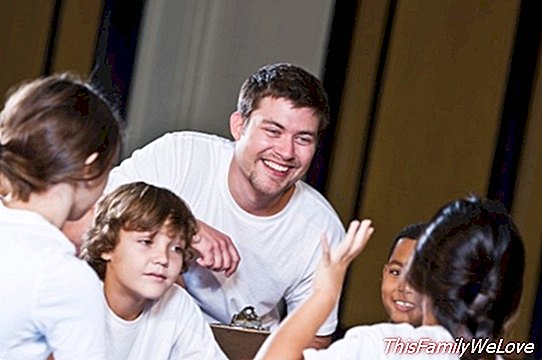Coaching in children's education

The educational coaching it is a discipline transversal to all the areas of knowledge that are taught in schools. It does not try to transmit knowledge, but to provoke admiration and excite both the teacher in his teaching, the father in his educational mission, and the student is his way of learning.
The fight against school failure, a reality that worries the whole society, is seen as a difficult battle to recover. This vision is rooted in the search for external solutions, however, it is possible to fight school failure from within schools, families and people, through tools of emotional intelligence, communication, creativity, leadership and work as a team, among others, that way you get the student is excited about what he does and discover the field of possibilities that it offers.
How coaching helps parents in education
Throughout life we receive all kinds of academic and intellectual training. However, none of the subjects taught teach the demanding task of being a father. A task that demands basic knowledge of pedagogy and psychology. Coaching combines all these basic knowledge to provide parents with tools that help to discover and eliminate the wrong educational techniques that, due to ignorance, they use with their children. Coaching can help parents to educate in responsible freedom by exercising reasoned reasoning why something is right or wrong and, thus, train children for mature and coherent decision making.
Tips to incorporate coaching techniques in home education
1. Discover the power of the word in human formation. It is not the same to say "you are stupid", that "you do nonsense". Receive messages of the type "you are stupid", makes the person assume it and believe it, behaving as such. Parents should be careful what they say and how they say it.
2. Discover and enhance your talents to help them believe in themselves and be authentic.
3. Be an example of struggle and not of perfection. For this it is important that the parents are coherent and consistent with their way of thinking, saying and doing.
4. Achieve an affective and effective communication. For this, it is important to be creative with the children and teach them to think for themselves, so that they are able to defend their ideas and make their decisions coherently.
Sometimes, we are willing to do everything for our children, less let them be themselves. The best we can do for them is not to show them our riches, but to let them see their own.
Miriam Sancho. Founding Partner and Academic Director of Coaching & YOU
You may also like:
- When a private teacher is necessary
- School failure
- Divorces increase school failure
- Difference between delay and school failure




